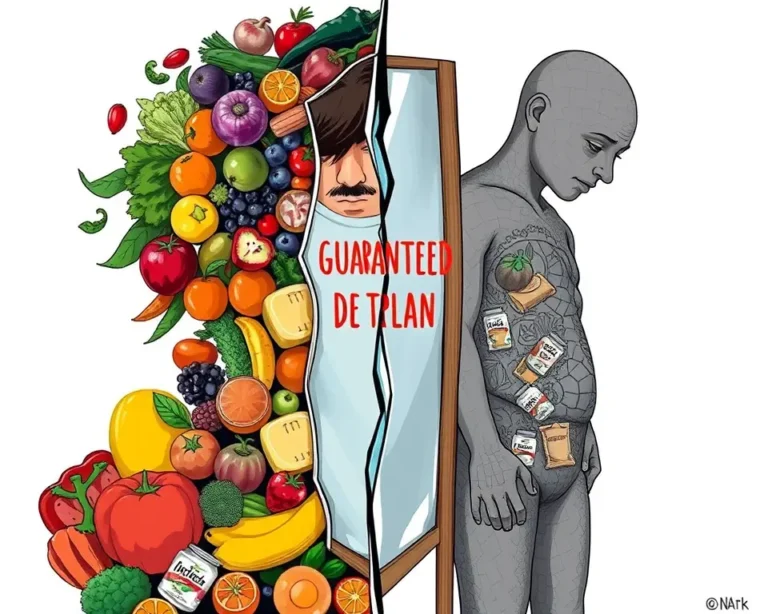Losing weight quickly is a popular goal, especially with events like weddings or vacations on the horizon. A fitness trainer has unveiled a diet plan promising a significant weight loss of 5 kg (approximately 11 pounds) in just one week. But before you jump in, it’s crucial to understand the potential risks and whether such rapid weight loss is a sustainable or even healthy approach.
The Allure of Rapid Weight Loss
The appeal of losing a substantial amount of weight in a short period is undeniable. Many people are drawn to the idea of quick results, seeking a fast track to their desired physique. This desire often leads individuals to explore various diets and strategies that promise rapid transformation.
The Proposed Diet Plan: What It Might Entail
While the specifics can vary, a diet plan designed to help you lose 5 kg in a week often involves severe calorie restriction and significant changes to your eating habits. Here’s a general idea of what such a plan might include:
- Very Low-Calorie Intake: Expect a daily calorie limit significantly below the recommended intake for adults. Some plans might suggest as low as 500-800 calories per day.
- Limited Food Choices: The diet might focus on a small selection of specific foods, potentially excluding entire food groups. For example, some rapid weight loss plans may recommend a fruit-based diet on Day 1, followed by a vegetable-centric diet on Day 2.
- Emphasis on “Detox” or “Cleansing”: The plan could include elements aimed at detoxification, such as specific drinks or foods believed to flush out toxins.
- Intense Exercise: To further accelerate weight loss, the plan might suggest a rigorous exercise regime.
Example Meal Plan (based on available information):
- Morning Ritual: Fennel seed water (soak 1 tsp fennel seeds overnight).
- Breakfast: Avocado bowl (1 whole avocado with black salt and lemon juice).
- Mid-Morning Snack: Cucumber and mint detox water.
Important Disclaimer: This is just an example based on limited information. Never start a diet without consulting a healthcare professional or registered dietitian.
The Catch: Risks and Downsides of Rapid Weight Loss
The fitness trainer’s “guaranteed” plan comes with a warning, and for good reason. Losing weight too quickly can have several negative consequences for your health and well-being.
Health Risks
- Muscle Loss: When you drastically reduce your calorie intake, your body may start breaking down muscle tissue for energy. This can lead to a decrease in muscle mass, which is detrimental to your metabolism and overall strength.
- Metabolic Slowdown: Rapid weight loss can signal to your body that it’s in “starvation mode.” As a result, your metabolism may slow down to conserve energy, making it harder to lose weight in the long run and easier to regain it.
- Nutritional Deficiencies: Severely restricting your food choices can lead to deficiencies in essential vitamins and minerals, potentially causing health problems like anemia, fatigue, and hair loss.
- Gallstones: Rapid weight loss can increase the risk of developing gallstones, which can cause abdominal pain and require medical intervention.
- Dehydration: Some rapid weight loss plans promote fluid loss, which can lead to dehydration and electrolyte imbalances.
- Other Side Effects: These may include dizziness, fatigue, constipation, headaches, and irritability.
Sustainability Issues
- Difficult to Maintain: Rapid weight loss diets are often very restrictive and difficult to stick to long-term. This can lead to a “yo-yo” effect, where you lose weight quickly but then regain it when you return to your normal eating habits.
- Unhealthy Relationship with Food: Restrictive diets can foster an unhealthy relationship with food, leading to feelings of guilt, anxiety, and obsession.
- Psychological Disturbances: Weight loss has been associated with psychological disturbances, including depression, anxiety, binge eating, and an obsession with food. Rapid weight loss can lead to secondary effects such as irritability, fatigue, and anger.
A Healthier Approach to Weight Loss
Instead of focusing on quick fixes, aim for a sustainable approach to weight loss that prioritizes your health and well-being.
Gradual and Steady Weight Loss
- Aim for a realistic rate: Most experts recommend losing 1-2 pounds (0.45-0.9 kg) per week. This allows your body to adjust gradually and reduces the risk of adverse effects.
- Focus on lifestyle changes: Sustainable weight loss is about adopting healthy habits that you can maintain for the long term, rather than following a temporary diet.
Balanced Diet
- Nutrient-dense foods: Build your diet around whole, unprocessed foods like fruits, vegetables, lean proteins, and whole grains.
- Portion control: Be mindful of serving sizes to avoid overeating.
- Limit processed foods, sugary drinks, and unhealthy fats: These foods are often high in calories and low in nutrients.
- Fiber-rich foods: Incorporate fiber-rich foods like whole grains, legumes, fruits, and vegetables.
Regular Physical Activity
- Aim for at least 150 minutes of moderate-intensity aerobic activity per week: This could include brisk walking, jogging, swimming, or cycling.
- Include strength training exercises at least twice a week: Strength training helps build muscle mass, which can boost your metabolism and aid in weight management.
Mindful Eating
- Pay attention to your hunger and fullness cues: Eat when you’re hungry and stop when you’re satisfied, not stuffed.
- Eat slowly and savor your food: This can help you feel fuller and prevent overeating.
- Avoid distractions while eating: Turn off the TV and put away your phone so you can focus on your meal.
Prioritize Sleep and Stress Management
- Aim for 7-9 hours of quality sleep per night: Lack of sleep can disrupt your hormones and lead to increased hunger and cravings.
- Practice stress-reducing techniques: Meditation, yoga, or deep breathing can help prevent emotional eating.
Stay Hydrated
- Drink plenty of water throughout the day: Water can help you feel full, boost your metabolism, and flush out toxins.
The Importance of Professional Guidance
Before starting any weight loss program, especially one that promises rapid results, it’s essential to consult with a healthcare professional or registered dietitian. They can assess your individual needs, health status, and goals to help you develop a safe and effective plan. A registered dietitian can offer personalized dietary advice, taking into account your medical history, lifestyle, and food preferences. They can also help you identify and address any potential nutritional deficiencies.
The Bottom Line
While the idea of losing 5 kg in a week might be tempting, it’s crucial to prioritize your health and well-being. Rapid weight loss diets are often unsustainable and can lead to various health risks. A healthier approach involves gradual weight loss through a balanced diet, regular physical activity, and mindful eating habits. Always seek professional guidance before making significant changes to your diet or exercise routine.







